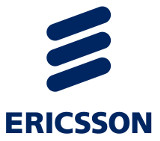Ericsson and Vodafone study user reactions to broadband delays
Tuesday, February 21st, 2017
Ericsson and Vodafone Germany use neuroscience to understand how network performance affects subscriber emotions, stress levels and operator brand.
- Even a two-second delay in uploading a selfie over Facebook is enough to cause stress among smartphone users participating in the study.
- Results show that consumers have high expectations around time to content with even one-second delay in loading video being stressful.
In a research project completed this week, Ericsson (NASDAQ:ERIC) and Vodafone Germany used neuroscience to understand what mobile broadband subscribers really think about poor network performance. Electroencephalography (EEG) equipment was used to monitor the brain activity of 150 subscribers who had volunteered for the project in Düsseldorf, Germany. The result showed that even small delays and disturbances raise the level of tension and stress, and have a negative impact on subscriber loyalty and operator brand.
The subscribers taking part in the study were required to complete 13 specific tasks in 10 minutes using a smartphone, while a degradation in the quality-of-service was simulated. The tasks included common actions such as browsing web pages, streaming videos, and uploading selfies. In addition to the EEG equipment, eye-tracking gear and pulse meters were used to monitor the attention span and heart rate of the subscribers.
Vodafone is the first in their market, and in the world, to have utilized new ways of studying consumer emotions in collaboration with Ericsson.
Guido Weißbrich, Director Network Performance, Vodafone Germany, says: “The study proves how quickly smartphone users become unsatisfied when a broadband network is not performing at its best. A mere one-second delay when downloading or uploading content has a significant negative impact on the user experience, so streaming services must do everything to avoid lengthy buffering or freezing of content.”
To examine how subscriber loyalty and brand perception were affected, the study was complemented with a questionnaire that the subscribers filled out before and after carrying out the tasks.
Bradley Mead, Head of Managed Services and Network Design and Optimization at Business Unit Network Services, Ericsson, says: “It is essential for operators to understand how people actually feel about the service they provide and how it really impacts their day to day lives. We now have valuable data that can be used to optimize and engineer networks to maximize the experience when using popular applications.”
The insights from the research project has led Ericsson to launch “Ericsson Neurometric Analysis” and add it to its App experience optimization portfolio. This new offering will be available for operators across the globe.
Ericsson at Mobile World Congress 2017
Anything can happen on the digital frontier, a promising but undiscovered future. From February 27 to March 2 in Barcelona, Spain, Ericsson is demonstrating a collaborative approach and innovative solutions to succeed in this arena.
With our customers and partners, we work across industries, physical boundaries and perceived limitations. Join us in Hall 2 or online during MWC 2017 and engage in conversations and demonstrations about our favorite things: 5G; platforms and services for IT, Cloud, Networks, and TV & Media; connected solutions for industries; the Internet of Things; and partnering for success.
See you there!
Latest News
- Barb to start reporting TV-set viewing of YouTube channels
- SAT FILM selects multi-DRM from CryptoGuard
- Qvest and ARABSAT to launch OTT streaming platform
- ArabyAds & LG Ad Solutions partner with TVekstra in Turkey
- Freeview NZ satellite TV service to move to Koreasat 6
- Comscore expands YouTube CTV measurement internationally
